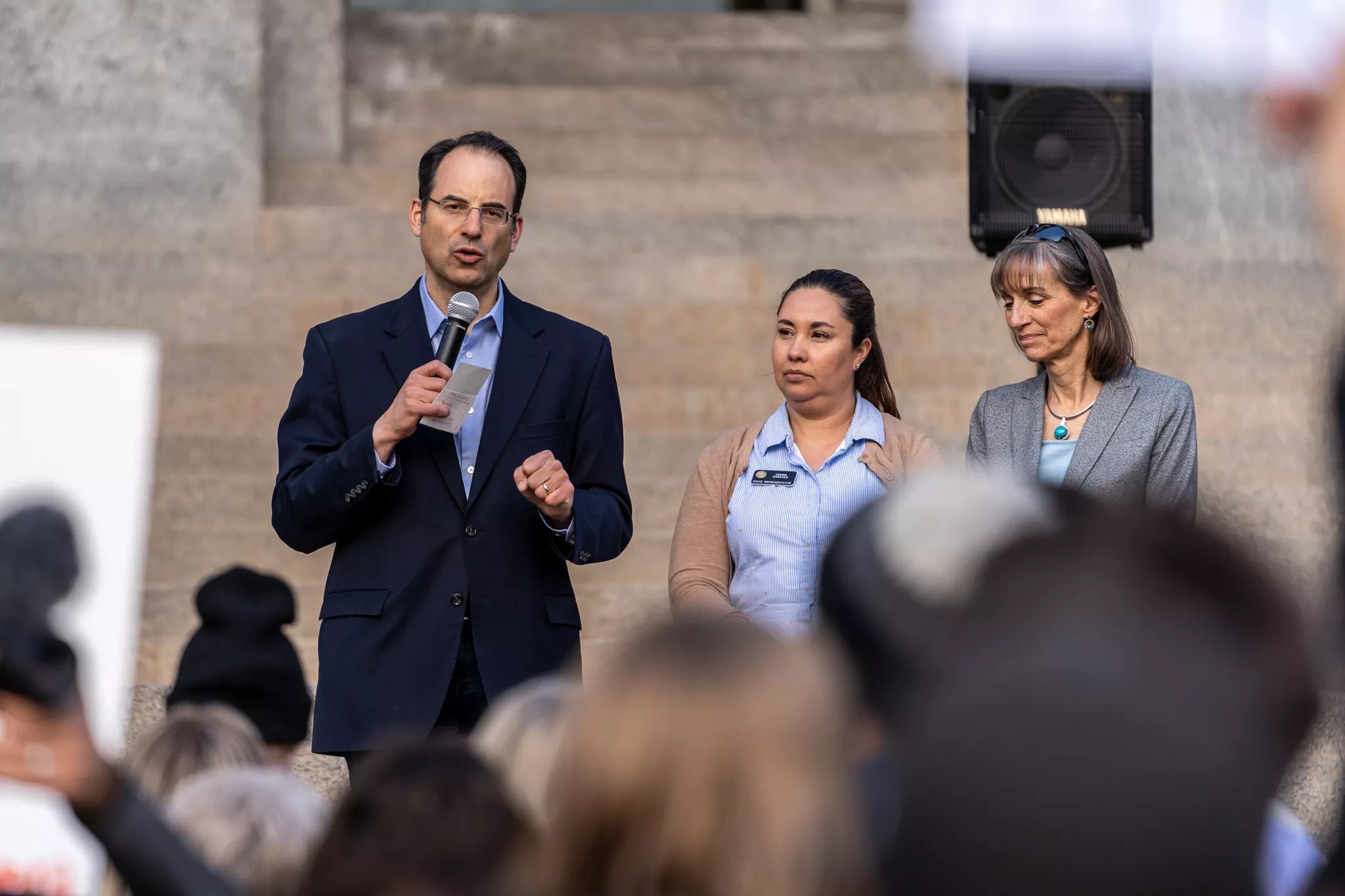
Michael Emery Hecker

Audio By Carbonatix
Colorado Attorney General Phil Weiser and eleven other state AGs just sent a public letter to the Drug Enforcement Administration, pleading with the agency to follow federal health recommendations by rescheduling cannabis.
Last August, the U.S. Department of Health and Human Services officially recommended that cannabis be lowered from a Schedule I federal substance to Schedule III. The HHS announcement came almost a year after President Joe Biden announced that his administration would review the plant’s Schedule I status and pardon low-level federal cannabis offenders.
Since voters in Colorado and Washington approved recreational cannabis legalization in 2012, 22 more states and Washington, D.C., have legalized adult-use cannabis, while 38 states allow some form of medical marijuana. According to the AGs’ letter, rescheduling cannabis from I to III is a “public safety imperative.”
“As state attorneys general, we have a responsibility to protect consumers and defend public safety,” the letter reads. “The undersigned are also particularly concerned about the illicit market, unregulated intoxicating hemp-derived cannabinoids, and the continuing proliferation of dangerous opioids. State-sanctioned cannabis markets provide access to regulated products that are clearly safer to what individuals can buy on the street – and supporting the effective operation of these regulated markets thus fits with our commitment to addressing the opioid crisis and rising overdose deaths.”
If approved by the DEA, a Schedule III label for cannabis would create more federal research opportunities and potentially allow business owners to apply for tax exemptions. It could also provide a pathway toward cannabis banking protection.
Because of the plant’s Schedule I status, banks and financial institutions are still banned from providing services to state-legal cannabis businesses. Dispensaries, growers and other cannabis businesses often lose their bank and credit-card accounts, struggle to secure loans, and typically have to deal in only cash at the consumer-facing level.
Weiser, along with AGs Kwame Raoul (Illinois), Rob Bonta (California), Anthony Brown (Maryland), William Tong (Connecticut), Andrea Campbell (Massachusetts), Kathleen Jennings (Delaware), Ellen F. Rosenblum (Oregon), Michelle A. Henry (Pennsylvania), Aaron D. Ford (Nevada), Matthew J. Platkin (New Jersey) and Peter Neronha (Rhode Island), all admit that using cannabis comes with health risks. Still, they argue that allowing illicit cannabis markets and intoxicating hemp products to survive is a more severe threat to public safety.
“Our regulatory regimes have sought to balance the mandate to create as safe a framework as possible with the reality of these risks. Juxtaposed against the dangers of the illicit market and unregulated hemp-derived cannabinoids, moreover, we believe that there is a public health and safety mandate to protect the state-regulated industry by rescheduling cannabis to Schedule III,” the letter continues.
A variety of hemp plants have been selectively bred to produce low amounts of THC and high amounts of CBD, a non-intoxicating cannabinoid with medical benefits – but CBD can be easily modified into different isomers of THC, including forms that aren’t banned by the federal government. That loophole has led to forms of THC like Delta-8, Delta-9 and Delta-10 THC, which are technically derived from hemp and able to exist without federal enforcement. Since that development, THC gummies and vape cartridges that get people high in a manner similar to recreational pot have boomed in popularity.
Congress legalized industrial hemp in 2018, roughly one year before intoxicating hemp products debuted on a commercial level. Ever since, these modified and synthetic forms of THC have been available for purchase online without proof of age, and at gas stations and other retailers. The federal government hasn’t enforced actions against the vast majority of this new industry, with a federal court ruling in favor of the legality of hemp-derived THC
Every AG that signed the letter presides over a state that has legalized recreational cannabis.
Following the HHS recommendation to reschedule, cannabis business leaders, activists and government officials reacted to this potential shift in American cannabis policy with everything from cautious optimism to calls for more aggressive actions. If the DEA agrees with the HHS recommendation, cannabis would be recognized by the federal government as having medicinal value and would be on the same legal level as anabolic steroids and ketamine.
Governor Jared Polis and United States Senator John Hickenlooper have both said they believe the DEA will eventually reschedule. Weiser, who has sent letters to Congress in the past asking for cannabis banking reform, argues that Colorado’s ten years of recreational pot sales has proven that a regulated system can work.
“Colorado is committed to protecting the integrity of its first-in-the-nation regulated cannabis market,” Weiser says in a statement attached to the January 12 letter. “We recognize that there are health and safety risks raised by the use of cannabis and we must continue to take them seriously and address them. We also are confident that a well-regulated market for cannabis products best protects consumers, and this action of rescheduling cannabis will better enable the market to function.”